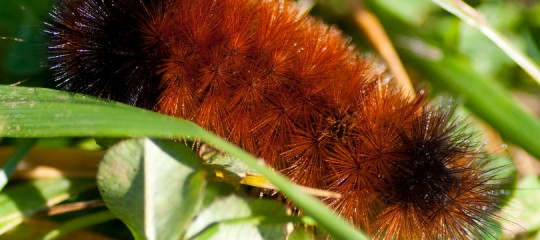What happens to bugs in winter?
Have you ever wondered what happened to the endless circling, buzzing, marching and trailing bugs in winter? In the summer, they seem to make presence on any occasion, usually as uninvited guests. On your picnic table, around your flower garden, and certainly wherever you don’t need or want them. But when temperature drops and snow boots are on, they are gone. But only for a few months; Then, Abaracadabra! They are here again.
The answer is simple. Insects and invertebrates survive winter with two strategies, avoid or Await. But you will be amazed by how much they can do and how they do it.
Avoiding the freezing winter is a common strategy for many. Just like migratory birds and bats, many insects can go down south as soon as the cold sets in and come back in spring. Of all migratory insects, the most amazing would be the Monarch butterflies, they can fly as far as 3,000 miles to central Mexico each winter and be back by spring. Yes, as delicate as they look, they do manage to put on the distance, every year. Some other insects, without such powerful wings, either go down deep in water or burrow in soil below the frost to avoid the deadly cold.
Awaiting for the spring in negative 30 weather is no joking, many insects do survive the winter without leaving. It’s called diapause: overwintering insects enter into a dormant, semi-frozen state until they thaw out in the spring. They usually hide under the tree bark or natural cavity and “do nothing”, just wait. To fight the damage of cold, there are two sci-fi level scenarios. Freeze intolerant invertebrates fill their blood with a great amount of special “anti-freeze” compounds such as polyhydroxy alcohols or glycerol to prevent ice forming inside the body. Some other, such as woolly bear caterpillars, actually freeze into solid statues and be still. If you touch them, they are as hard as a rock, but still alive. How can they freeze solid and then just simply thaw and move again with no damage to their tissue is still beyond our understanding. Maybe someday we will decipher the magic and practice it on ourselves.
Certainly, many insects do die in the winter, leaving only eggs behind. The ones you see in the spring are entirely new generation that just hatched and carry on their lives.






